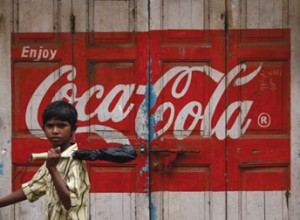After a long-standing bid to enlarge its footprint in China, Coca-Cola recently announced that its proposed acquisition of Chinese juice manufacturer Huiyuan has been terminated following the beverage giant’s failure to obtain approval of the deal from China’s Ministry of Commerce (MOC).
 The decision of the Chinese authorities to reject the US$2.4 billion bid was linked to anti-monopoly concerns. China introduced a new anti-monopoly law in August last year after almost 15 years in the making. When Coca-Cola’s bid was first announced, many observers saw the deal as an important test case for the new regime. Comparisons are now being drawn to India, which is also in the process of introducing a new anti-monopoly law. The amendments to India’s Competition Act were passed in 2007 and are likely to come into force in June this year.
The decision of the Chinese authorities to reject the US$2.4 billion bid was linked to anti-monopoly concerns. China introduced a new anti-monopoly law in August last year after almost 15 years in the making. When Coca-Cola’s bid was first announced, many observers saw the deal as an important test case for the new regime. Comparisons are now being drawn to India, which is also in the process of introducing a new anti-monopoly law. The amendments to India’s Competition Act were passed in 2007 and are likely to come into force in June this year.
“It is feasible that a deal could be blocked in India on similar grounds,” warned Anand Pathak, a partner at Delhi-based P&A Law Offices. “There is still a fair amount of nervousness in Indian industry about the enforcement of the merger control rules.”
You must be a
subscribersubscribersubscribersubscriber
to read this content, please
subscribesubscribesubscribesubscribe
today.
For group subscribers, please click here to access.
Interested in group subscription? Please contact us.






















